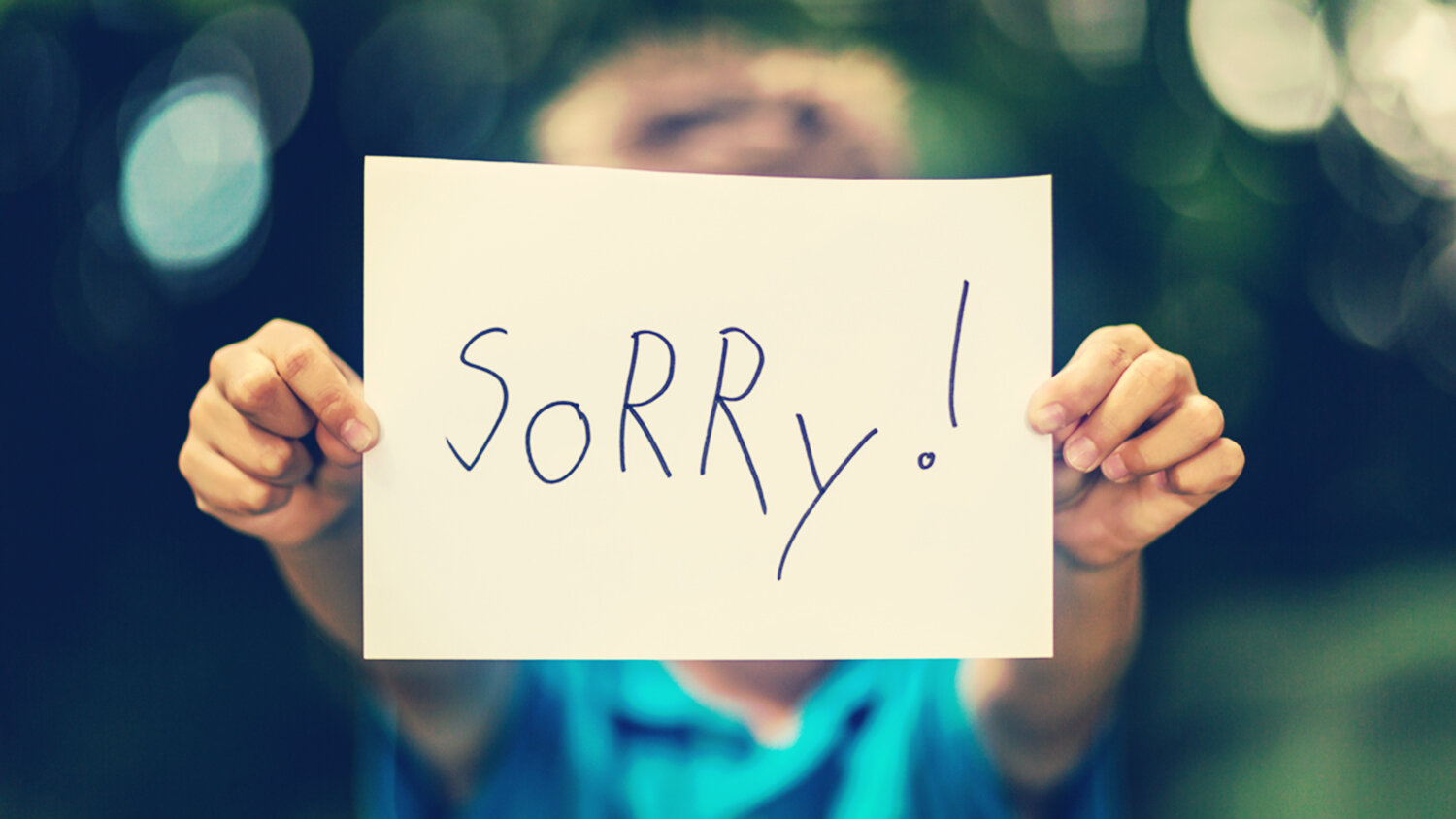“Sorry? Yeah, right!”
BY SEÁN MULLAN
(From the April - June 2017 issue of VOX.)
"Say sorry!” Most parents have given that instruction to their children more times than they want to remember. It often comes with a good dose of indignation and frustration at their behaviour. One of my many “dad dilemmas” was dealing with the times when my children obeyed me and did say “sorry” like I told them. But both they and I knew full well it was a lie. They weren’t sorry; they were only saying “sorry” to make life easier for themselves - and maybe even for me as well.
Most parents don’t just want their child to say “sorry;” we want them to be sorry - to feel some level of genuine remorse. “How could your sister not cry after what you said to her?” “Who do you think’s going to have to fix that window?” “How do you think your mother feels when she finds two months of the school lunches she made in the wardrobe?” Ok - that’s the end of the autobiographical section!
“There’s an awful lot of saying “sorry” going on in the Irish state right now.”
There’s an awful lot of saying “sorry” going on in the Irish state right now. Run a web search for “HSE Apology” and the first hit is a document produced by the Health Services Executive last November entitled “The Apology - Saying Sorry to Patients/Service Users and/or their Families.” What follows is advice under headings like “The Components of an Apology” and “The Delivery of an Apology” and “Phrases to Avoid when Apologising.”
No, I’m not making this up. That documents needs re-labelling. It should be called “How to say sorry when you’re not.” I don’t mean that the individuals concerned are not sorry. The Health Service is populated with many fine professionals who seek to do their job as well as they can and are genuinely sorry when something goes wrong. But the issue is this: Is the institution sorry? Can institutions be sorry?
Take a recent example from the media of an award to a young child left severely brain damaged by a failure to run a simple test in the hours following the birth. The Health Service accepted 100% responsibility and apologised. But here’s the thing - the birth took place over six years ago. What does “sorry” mean to those parents when you have spent six years in a court process, risking your finances, your health and your well-being to get professionals to take responsibility for failures that they probably fully understood and accepted within days of the original event?
By and large, parents in these situations face stonewalling, a kind of institutional silence where no one tells you anything. The doctors and nurses who seemed to be such good carers suddenly seem embarrassed to see you and don’t have anything to say. Afraid for their own jobs and future, they clam up. Eventually, the truth emerges but only after years of anxiety and anger that add immeasurably to the original trauma.
It’s not only the health institutions that are saying “sorry” these days - state and state agencies, churches and religious organisations are all involved. And most of these are characterised by this same refusal to own up early and take responsibility for the consequences. Apologies eventually emerge like some deeply rooted molar that only comes out because it’s been forcibly dragged from a jaw that refused to let it out.
“Sorry” means dealing with an issue as quickly as possible. “Sorry” means revealing all the facts to the people who need them to know as soon as those facts are known. “Sorry” means offering appropriate support and compensation long before the courts or the media know anything about it. “Sorry” means we’re starting work now to try and make sure this doesn’t happen again to someone else.
And finally, “sorry” means we will try to develop an institution that puts the people it serves first and tries to treat them better.
Most of the institutions involved in the apology business have mission statements. I suggest they all be replaced by one. It’s been around a while but seems to have become less familiar, and that’s our loss. The man from Nazareth suggested that it was the second-most important phrase you could ever learn: “Love your neighbour as you love yourself.”
Imagine a country in which every consultation with a professional of any kind begins with the client saying “I am your neighbour” and the professional replies “And I am yours.” Try that one on the next professional whose services you need. And don’t say “sorry” when you do.
Seán Mullan has been working in church leadership for many years. He has developed a project in Dublin City Centre called “Third Space”.


